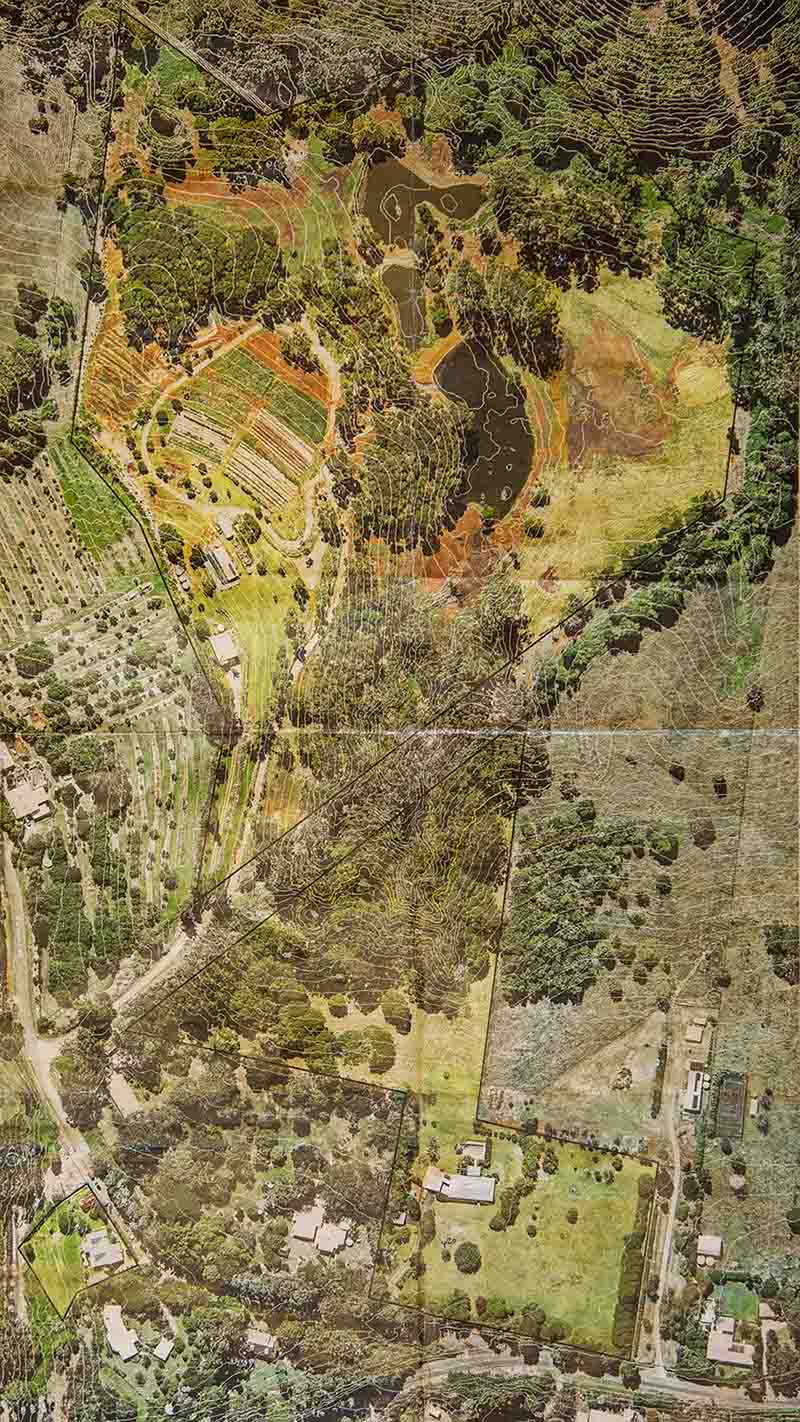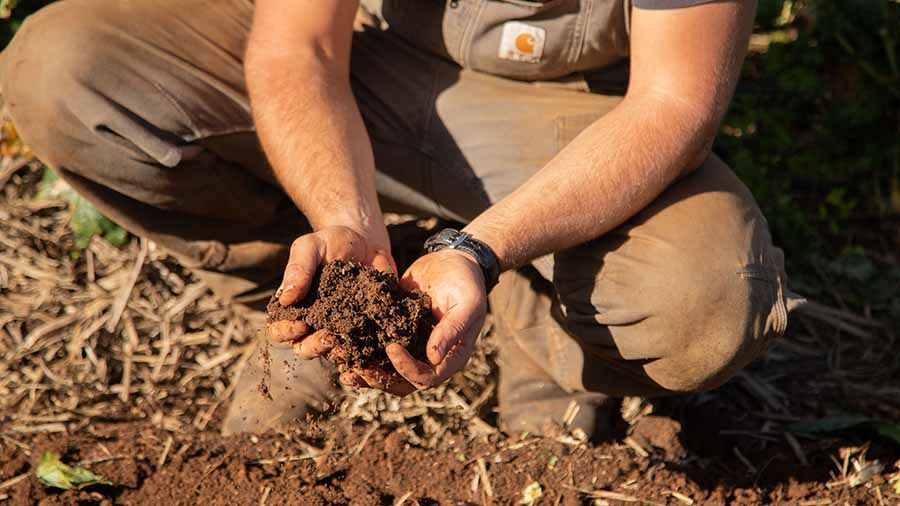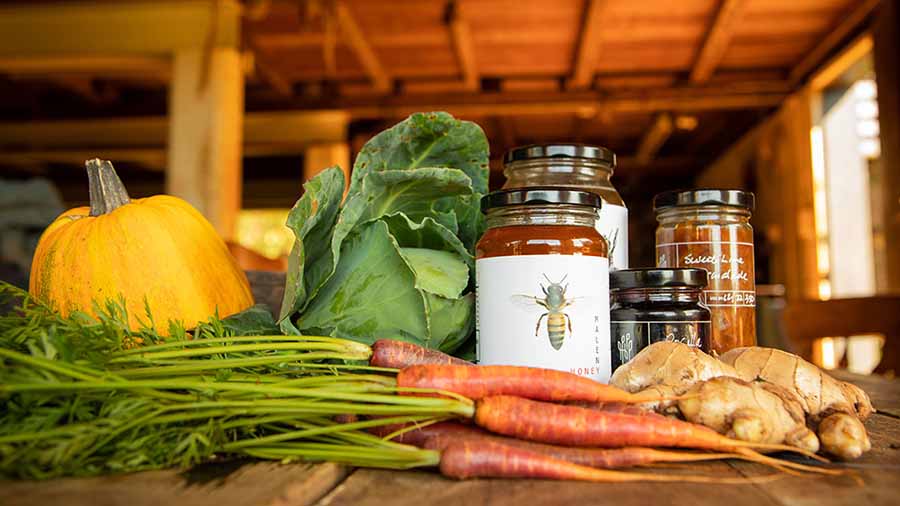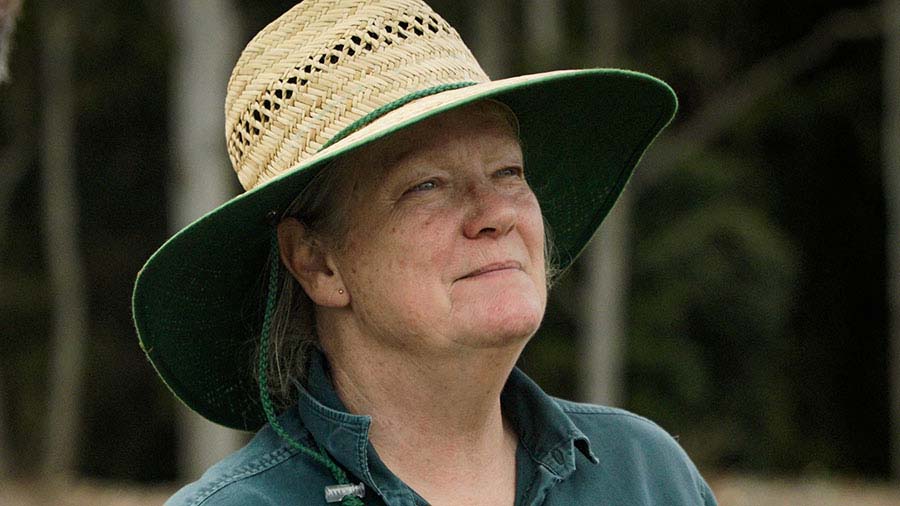The Falls Farm lies on one of the first selections carved out by European settlers in the Blackall Range. Around 2 ha of land was granted to the new arrivals, provided that the rainforest was cleared for agriculture. Over the ensuing decades the land has been used for various farming ventures including small dairy herds, citrus orchards, and potato and strawberry cropping. Prior to the arrival of the farm's current stewards, the elderly landholders who preceded them struggled to maintain the land. The farm became progressively overrun with invasive species such as lantana and camphor laurel, as well as being reclaimed by native species from neighbouring rainforest.
The farm became progressively overrun with invasive species such as lantana and camphor laurel, as well as being reclaimed by native species from neighbouring rainforest.
Ben Johnston and Jess Huddart purchased the property in 2013. The couple are successful entrepreneurs and business partners whose work has taken them all over the globe. When not on assignment in Stockholm or LA, Ben and Jess are based in Brisbane. They bought their Mapleton property for a relaxing retreat from their busy city lives but had little intention of farming. As Ben's mother and farm manager, Christine Ballinger, puts it, "It took all of about 10 minutes for them to start talking about growing vegetables here."
Ben and Jess brought Christine on board as farm manager, and they started planning how they would clear their farm of invasive trees and environmental weeds and prepare it for agriculture once again.





